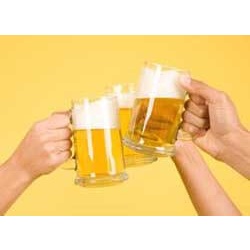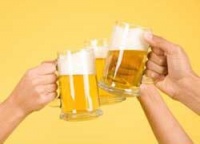
When is someone drunk?
by decorahnews.com's Paul Scott:
I have to admit that I don't run across a lot of drunk people. So there I was, in the basement of the Train Station in Calmar last week, trying to figure out what I would look for if I were a bartender wanting to make sure my customers got cut off if they couldn't handle the next drink.
"We don't want intoxicated persons out there," Winneshiek County Sheriff's Deputy Tim Felton pointed out helpfully. But who's intoxicated--and who's just having a good time? The waitresses and bartenders who attended Helping Services for Northeast Iowa's Beverage Server Training knew that it's difficult to tell someone "no." Not only that, but the restaurant's or tavern's business--and the waitress' tips--depend on serving drinks.
Felton admitted that it's getting harder to spot someone whose blood alcohol level is over the limit. That's because drug use--both legal and illegal--can sometimes produce reactions similar to drunkenness.
So beverage servers have to look for behavioral tips. Sure, the chances are good someone's drunk if they fall off a barstool or bump into something. But because alcohol affects a person's inhibitions first, someone who is speaking loudly, being overly friendly or becoming argumentative could also have had too much to drink.
What's Felton's advice to waitresses and bartenders? "Nothing says you have to serve them," he tells the group. In fact, there are incentives for beverage servers to say "no." It's not just the bar or restaurant that gets fined if there's a liquor law violation--servers can get a $500 fine plus other costs that bring the total bill to around $700.
So Felton and Decorah Police officer Scott Hermann met with around 30 beverage servers last week, trying to give them tips to help them follow the law and stay out of trouble. "We want to work with you," said Hermann. "We don't have an (arrest) quota," stated Felton.
Tuesday: How do police liquor law stings work?
Site designed and maintained by Iroc Web Design Services©.
Your Small Business Web Design Solutions.™


